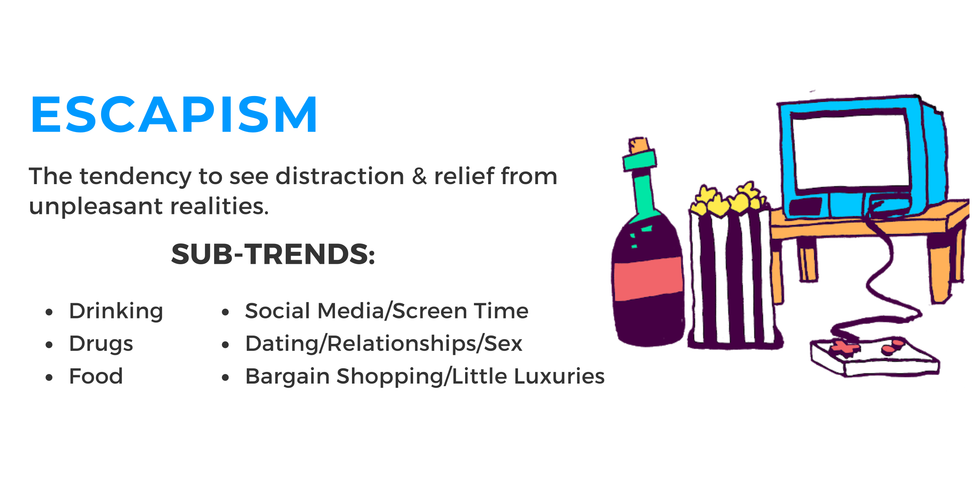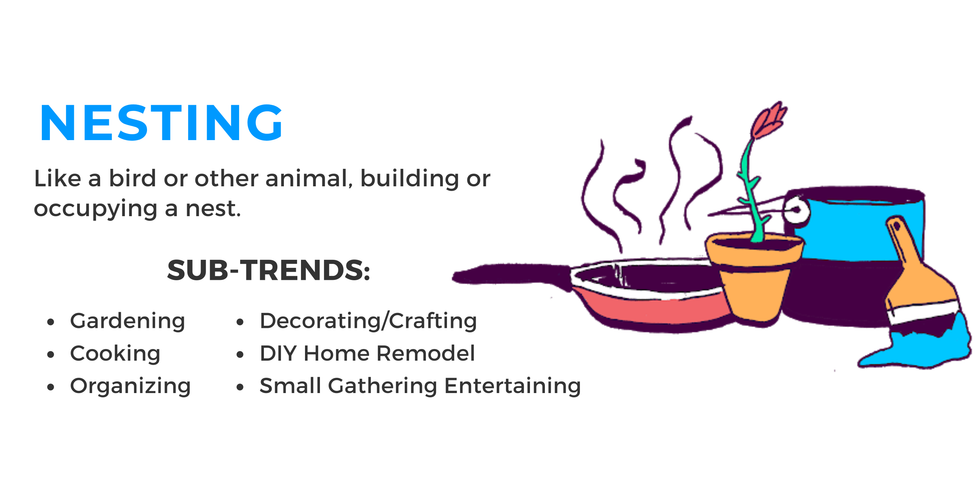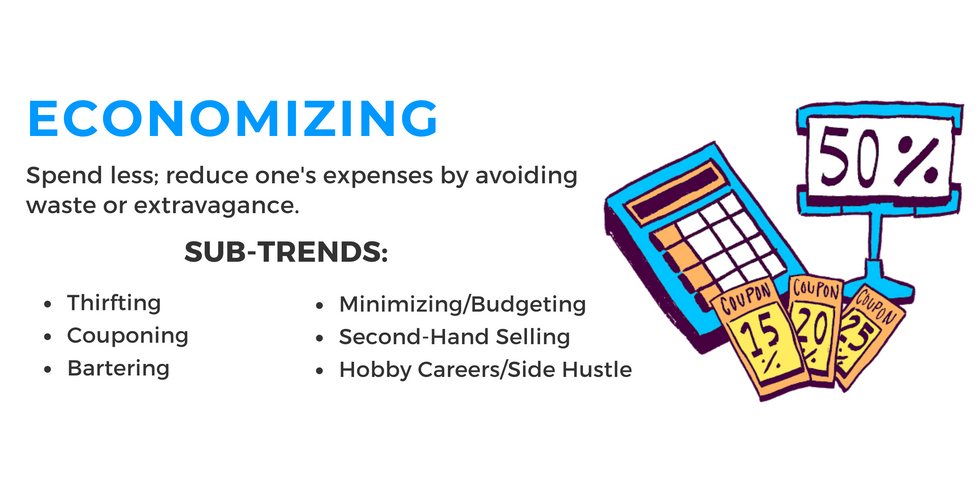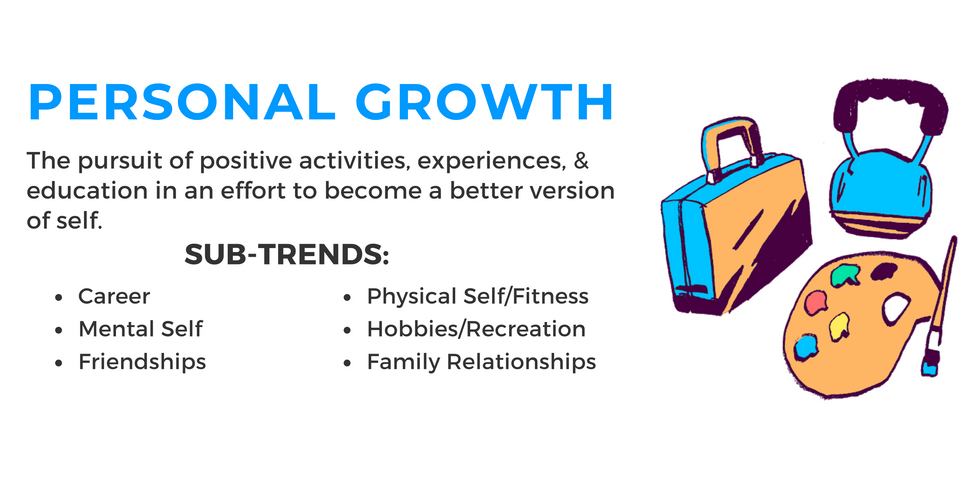If we were to sum up COVID-19 in one word, it would be traumatic. Thankfully, there's something called "post-traumatic growth" that all of us will experience if we make it through the five stages of grief and focus on building good habits.
Until then, these are the 24 mega trends that will dominate society in 2020.
Escapism

The first main trend we'll see during COVID-19 is escapism. Under this umbrella, we have the first six sub-trends. These include drinking, drugs, food, social media/screen time, dating/relationships/sex, and bargain shopping/little luxuries.
A person may indulge in one or more of these activities to "escape" the unpleasant realities of COVID-19. Were you laid off? Did an important life event get canceled? Is a loved one sick or at higher risk of getting the coronavirus?
When we are stressed, it's common to seek distractions in order to find some kind of relief.
In terms of the five stages of grief, people who are in the denial, anger, and depression stages are much more likely to exhibit these behaviors. When we are hurting, these six things can bring us the comfort we so badly need, no matter if they're healthy or not.
Nesting

If escapism is about seeking comfort, nesting is about creating comfort. When engaging in nesting, our second main trend, you're doing activities that have a physical presence that make you feel better. Those activities include gardening, cooking/baking, organizing, decorating/crafting, DIY home remodeling, and small gathering entertaining.
When awful events happen (like COVID-19) that change and disrupt our normal lives, we naturally want to channel that time and energy into something else. How can you keep busy? Are there other ways to be productive?
These activities can also be used to procrastinate on the bigger, more important tasks we may be ignoring. We want to make our homes feel as comfortable and inviting as possible, while not necessarily acknowledging the scope or magnitude of what's happening outside those four walls.
Nesting behavior is common in people entering the denial or bargaining stage of the five stages of grief. If you're doing anything other than accepting the current situation and making appropriate adjustments to your life, you're likely engaging in one of these six activities.
Economizing

The COVID-19 crisis is having a huge financial impact on everyone. So, it's only natural for people to look for ways to save money during this time. That's why economizing is the third major trend we will see in 2020. The six sub-trends include thrifting, couponing, bartering, minimizing/budgeting, second-hand selling, and hobby careers/side hustles.
How can you reduce your expenses? What are some creative ways to make money? How can you cut down on waste? This is what people will be thinking about as we continue to navigate COVID-19 and start to deal with the aftermath of the crisis.
If you were laid off due to COVID-19, these habits are especially relevant. When you're unemployed, money is on your mind 24/7, and it's important for you to control your spending and avoid going into debt as much as possible.
We usually won't focus on economizing until we enter the bargaining and acceptance stages of grief. That's when we'll consider one of these six options to help us save or make money, in the short and long term.
Personal Growth

Our final main trend for 2020 is personal growth. After experiencing a traumatic event and moving through the five stages of grief, you'll see growth in your life in these six areas: career, mental-self, friendships, physical-self/fitness, hobbies/recreation, and family relationships.
This will be a transformational time for you. You've accepted whatever challenges COVID-19 has thrown your way, and you're engaging in positive activities, experiences, and education to become a better version of yourself.
When you make it to the acceptance stage, you'll start to reflect on your life. How can I improve? What do I really want to accomplish? What parts of my life aren't serving me?
You will experience post-traumatic growth after COVID-19. Just keep these 24 mega trends in mind as you move through the five stages of grief.
It's good to be aware of what we are doing, and why we are doing it. We hope you found this article to be insightful and informative, and we encourage you to share it with your family, friends, and colleagues.
Like This Article? Share The Infographic Below!





